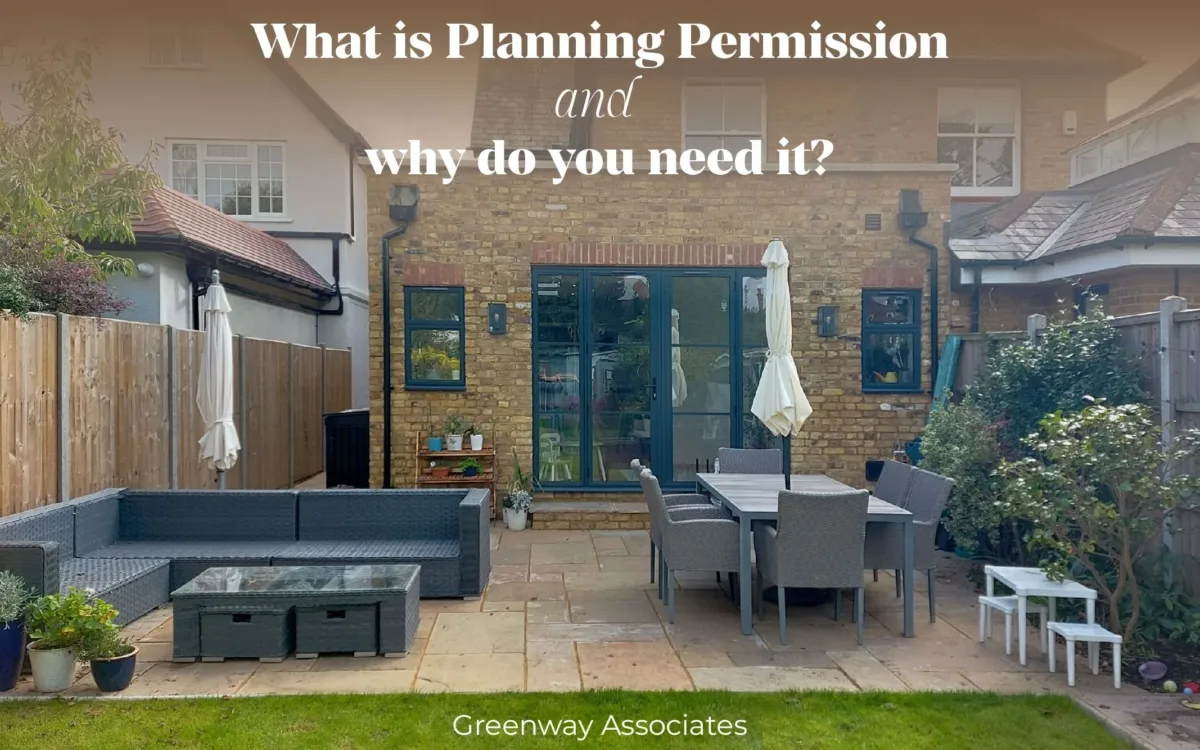Planning Permission in the UK: Step-by-Step Guide on how to Secure It
How would you feel if your neighbours’ large extensions blocked out the natural lights or it encroached onto your space? Even worse, how would you feel if a random house gets built in the adjoining heritage space or a public garden? Well, that’s why local authorities want you to get planning permission in the UK before you create something new, an extension, or change the usage of your building.
Table of Contents
- What is Planning Permission?
- Types of Planning Permissions
- When do you need Planning Permission?
- The Planning Application Process
- What to do if Planning Permission is Refused
- Permitted Development Rights
- Tips for a Successful Planning Permission Application
- Frequently Asked Questions about Planning Permission

What is Planning Permission & Why do you need it
What is Planning Permission?
Planning permission is an approval from your local planning authority (LPA) that allows you to carry out specific building and development projects. This ensures that your plans comply with local laws and regulations, preserving the environment and community standards.
Types of Planning Permission
You may wonder what are the different types of planning permission. Well, there are several types of planning permission you may need depending on your project:
- Full Planning Permission: Required for major changes like new buildings or significant alterations.
- Outline Planning Permission: Used to gauge if a larger project is likely to be approved before detailed plans are made.
- Listed Building Consent: Necessary for any changes to buildings that are on the national heritage list.
- Conservation Area Consent: Required for demolition in a conservation area.
When do you need Planning Permission?
Planning permission is required when you:
- Build something new
- Make significant changes to an existing building (e.g., extensions)
- Change the use of a building
- Extensions that exceed 50% of the original house area
- Any work on listed buildings or properties in conservation areas
- Significant changes to the front of a property facing a road
When you do NOT need Planning Permission:
- Smaller rear extensions
- Certain minor changes that covered under permitted development rights
The Planning Application Process
The planning application process in the UK typically involves:
- Preparing your Application: Including detailed drawings and site plans.
- Submitting through the Planning Portal: www.planningportal.co.uk is the official website for planning applications.
- Local Authority Review: Your application will be reviewed based on local policies and the National Planning Policy Framework.
Pro Tip: The planning application process is intricate and time-consuming. Consider hiring a planning consultant to ensure your application is thorough and meets all requirements.
What to do if Planning Permission is Refused
If your planning permission is refused, you have a few options:
- Modify and Resubmit: Address the reasons for refusal and resubmit your application.
- Appeal the Decision: You can appeal to the Planning Inspectorate if you believe the refusal was unjust.
Permitted Development Rights
Permitted development rights allow you to undertake certain types of work without needing full planning permission. These rights cover:
- Small rear and side extensions.
- Loft conversions and roof alterations.
- Building porches and outbuildings within specific size limits.
Important Note: Permitted development rights do not apply to flats, maisonettes, new homes, or listed buildings, and local authorities can restrict these rights in certain areas.
Tips for a Successful Planning Permission Application
- Research Local Policies: Understand what your local authority looks for in an application.
- Prepare Detailed Plans: Include comprehensive drawings and site plans.
- Consult a Professional: Hiring a planning consultant can increase your chances of approval.
- Engage with the Community: Gather support from neighbors to show community backing.
Frequently Asked Questions
- How much does planning permission cost?
The cost can vary depending on the project and location. Typically, fees range from £200 to £400 for home extensions. - What do I need to submit for an online application?
Along with your application form, you will need to submit the following:
a) A site location plan
b) All the drawings
c) Existing and proposed elevations
d) Technical details
e) A product survey sheet
f) An ownership certificate - How long does it take to get planning permission?
The process usually takes about 8 weeks from the date of application submission. - What happens if I build without planning permission?
Building without the required permission can lead to enforcement action, including orders to demolish the unauthorized structure. - Should I use a consultant for planning permission?
Using a consultant can be beneficial, especially for complex projects, as they can navigate the intricacies of the planning process and increase the likelihood of approval. - What planning permission do I need for home extension?
Small extensions might qualify for permitted development. However, in the following cases, you might require planning permission:
a) Extensions exceeding 50% of the original house area.
b) Extensions exceeding a certain height or depth.
c) Extensions built to a property facing a road.
- What planning permission is required for loft conversion?
Converting the loft of a house is considered to be permitted development (not requiring planning permission) subject to certain limits and conditions.
Conclusion
Securing planning permission in the UK is a crucial step in any building project. By understanding the types of permission, when you need it, and how to navigate the application process, you can ensure your project proceeds smoothly. For expert guidance, consider consulting professionals like Greenway Associates, who can handle the application process and provide valuable advice.
Ready to start your project or have more questions about planning permission? Contact Greenway Associates today for more information and support.


